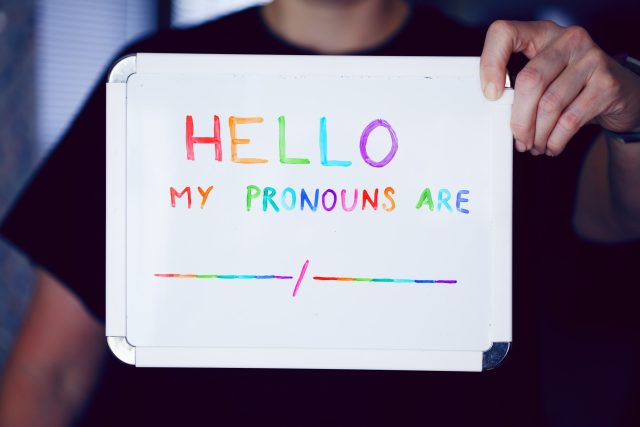I’m an Accomplice
By: Michael Toohey, Psy.D. | June 7, 2024

Long before I was a psychologist, I was a volunteer and worked with all sorts of queer people. I remember volunteering in Hawaii almost 30 years ago, and one of the local volunteers was a trans woman. She was in the process of transitioning, and to get the “approval” of a psychiatrist to fully transition, she was required to wear a dress or skirt every day, for one year. She did so reluctantly. In her own words, she was a “jeans and T-shirt kind of girl.”
I wasn’t aware of the word gatekeeping then (when someone takes it upon themselves to decide who does or does not have access or rights to a community or identity), but I am now. That psychiatrist, no matter his intention, was gatekeeping. In his eyes, the client had to “prove” to him that she was actually transgender.
This experience influenced how I practiced as a psychologist. I decided that I was not going to write “letters of approval” to determine if someone is trans or not, or ready to transition or not. The only person who can make this decision is the trans individual, and I wasn’t going to be a gatekeeper.
I’ve met many trans folx who seek assistance from a mental health provider for a letter in support of their transition. They’ve been told, “Let’s address your depression and anxiety first, before we talk about you transitioning.” These providers missed what is obvious to many of us: being depressed and anxious is a typical experience of gender dysphoria. They were offering to treat symptoms (depression and anxiety) instead of treating the problem causing the symptoms (gender dysphoria.)
Gender Affirming Letters and Surgery
Gender affirming surgeries can assist in decreasing the dysphoria a person may feel relating to their body and gender. These surgeries require a letter written by a mental health professional to the surgeon, who in turn provides it to the insurance companies. Without such a letter, the insurer may not reimburse the costs associated with the procedures. Given the necessity of insurers covering the costs, I had to reconcile my perspective on gatekeeping. If I don’t provide these letters, could that be considered a form of gatekeeping? If I do provide these letters, aren’t I reinforcing an institutional form of gatekeeping?
I resolved this dilemma by moving from being an ally to being an accomplice.
An ally says, “I am here for you” whereas an accomplice says, “I am here with you.”
In this resolution, I am proud to announce that I will be providing individuals who are seeking or need a letter from a mental health professional they can provide to their surgeons.
Such letters include information regarding an assessment of past and current functioning, listing gender dysphoria symptoms, examples of the trans person in the social aspects of their transitioning process (pronoun usage, chosen name, sharing their identity), awareness of the risk of surgery, as well as their desired outcome, and their aftercare plans, including practical and social support. Typically, this can be accomplished during one appointment.
These letters reflect the latest standards of care by the World Professional Association for Transgender Health (WPATH). WPATH publishes a consensus regarding the psychiatric, psychological, medical, and surgical management for people with gender dysphoria and is widely respected.
Therapy Changes has long been involved in helping people live their most fulfilled lives and understand the unique challenges facing the LGBTQ+ community. If you, or someone you know, is experiencing gender dysphoria, we can assist both with individual and couples therapy, as well as providing a necessary letter to access gender affirming surgeries. At Therapy Changes, we are here with you, we are your accomplice.
Contact Us today to schedule an appointment with a talented member of our team.
Photo by Alexander Grey on Unsplash



